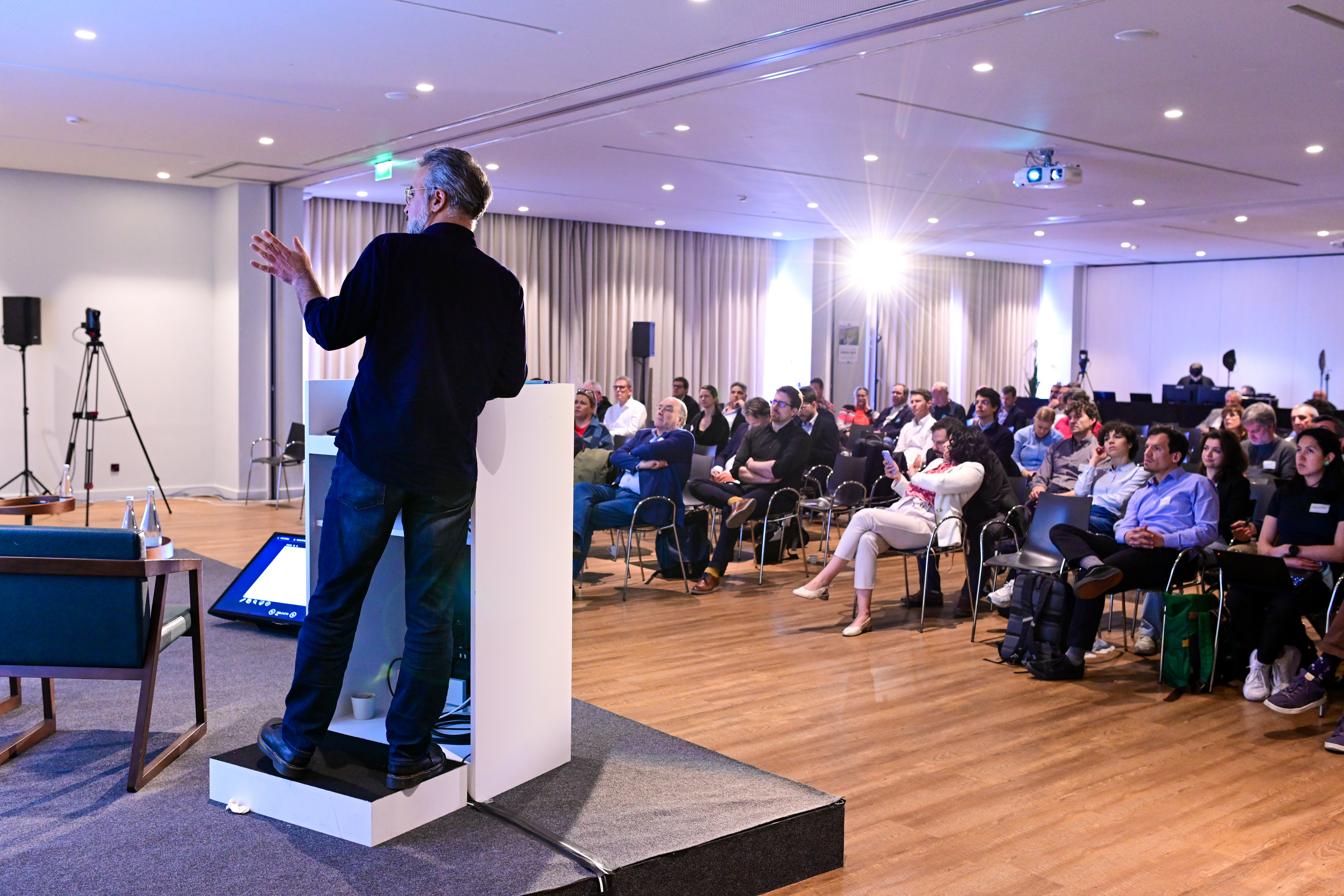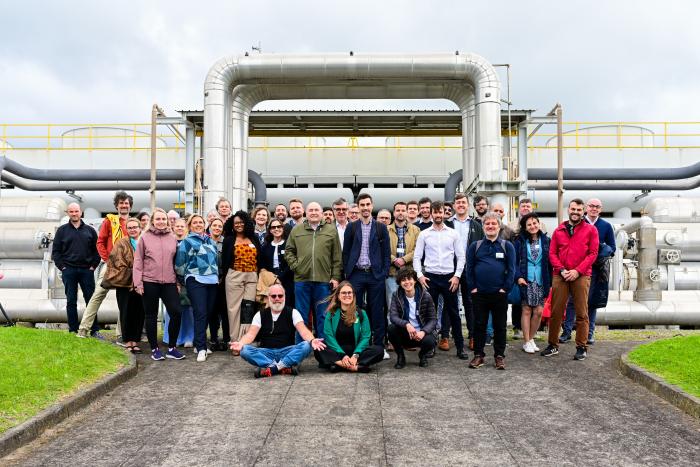
Opening Session: Islands as Pioneers of the Clean Energy Transition
The 2025 Clean energy for EU islands forum opened with a powerful message of progress and ambition. Jan Cornillie, representing the Clean Energy for EU Islands Secretariat, welcomed participants by celebrating the achievements of 44 islands, including 30 workshops and 20 technical reports. He proposed the creation of an “Island Grid Pact” to address the urgent need for enhanced grid capacity and resilience across Europe’s islands.
Alejandro Ulzurrun De Asanza Y Munoz from the European Commission’s Directorate-General for Energy (DG ENER) emphasised the EU’s strategic priorities: reducing energy costs, upgrading infrastructure, and ensuring business competitiveness. He encouraged islands to lead the way in clean energy innovation, positioning them as testbeds for scalable, resilient energy systems.
Furthermore, Paulo André, CEO of Electricidade dos Açores, showcased the Azores as a model for regional energy transformation. He reported that São Miguel has achieved 44.5% renewable energy penetration, while Graciosa reached 60%, including a whole week powered entirely by renewables. Plans are underway to expand geothermal, wind, and solar capacity, with smart meter deployment targeted by 2028.
Berta Cabral, Regional Secretary for the Government of the Azores, presented the Azores’ 2030 energy strategy. It includes a 30% reduction in gas use, the development of nine microgrids, introducing electric ferries, and over €130 million in renewable energy investments. The Azores’ approach blends technological innovation with strong political commitment and community engagement.
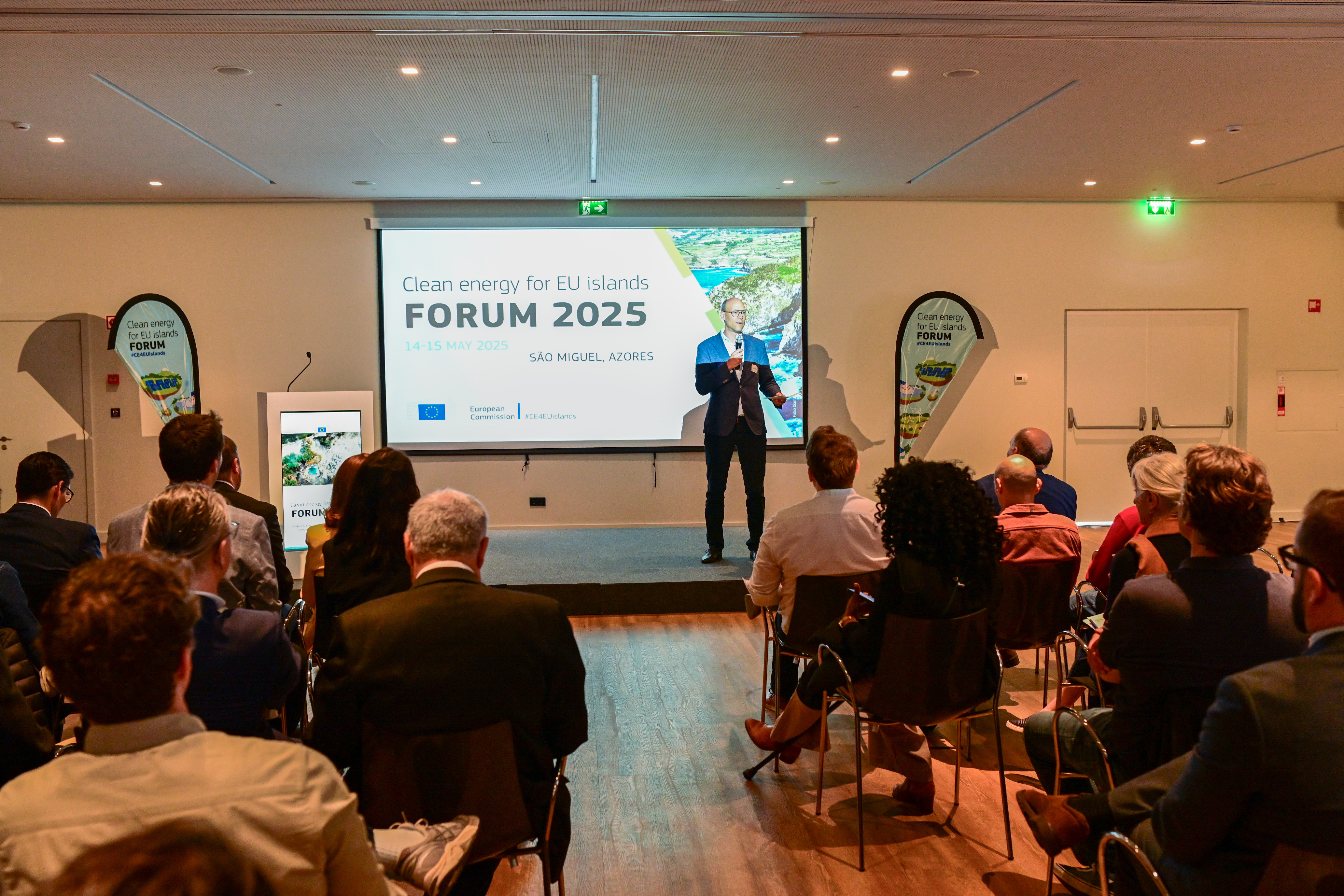
Keynote speech: Energy transition and public policies for the Portuguese islands
Prof. João Abel Peças Lopes of INESC TEC and the University of Porto delivered a keynote highlighting the critical role of smart grids and energy storage in enabling high renewable penetration. Drawing on examples from Madeira, he discussed hydro-pumping systems, battery storage, and the Green Ports project.
He also presented research from São Miguel, demonstrating how electric vehicles can be integrated into the grid to support renewable energy uptake and grid stability. His address underscored the importance of digital tools and flexible infrastructure in managing intermittent energy sources on islands.
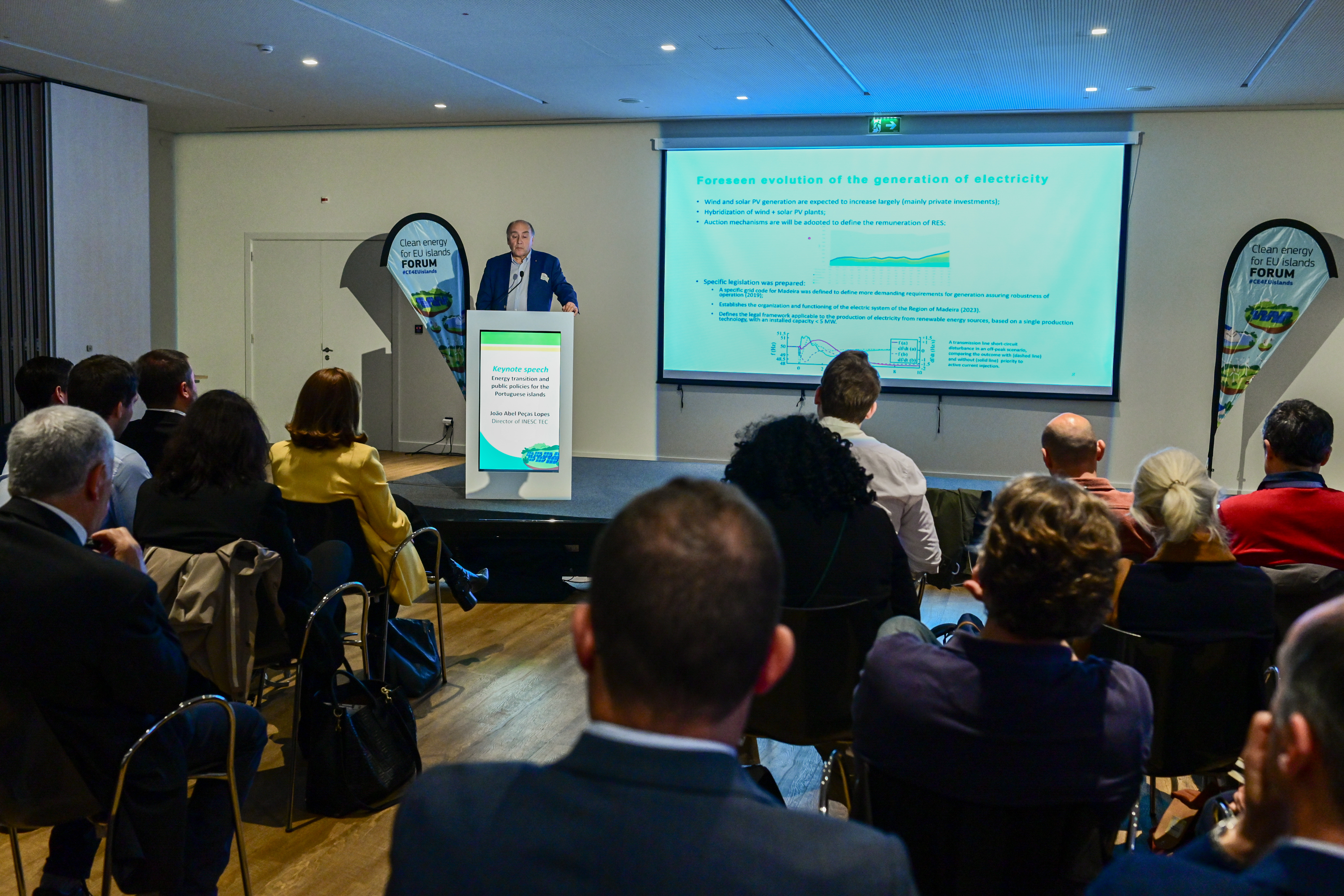
Breakout Session: Renewable Energy Generation
This session explored the technical and social dimensions of renewable energy deployment. Catherine Ryan (Cape Clear) and Angelo Parodo (San Pietro) shared case studies that illustrated the challenges of balancing land use, community acceptance, and technical feasibility.
The session emphasised the importance of transparent communication, shared ownership models, and context-sensitive project design. Participants discussed trade-offs between large-scale and distributed systems and between land-based and offshore installations. Speakers also addressed the challenges of deploying renewables on islands. Speakers emphasised the need for community-centred approaches that respect local contexts and land use constraints. Transparent communication and compensation schemes were highlighted as effective tools for gaining public support.
Participants discussed the trade-offs between centralised and decentralised systems and the importance of aligning projects with local development goals.
The session highlighted the complex balance that islands must strike between social, environmental, and techno-economic priorities in renewable energy projects. Limited space, biodiversity protections, and infrastructure constraints often create tensions, but the key to success lies in strong community involvement, tailored financial and regulatory support, and capacity building. Examples like Fejø and Mayotte showed that inclusive planning and local empowerment, primarily through partnerships and training, can overcome challenges and ensure that the energy transition benefits island communities directly.
Breakout Session: Sustainable Transport
This session examined decarbonised mobility solutions. Case studies from Giglio, Giannutri, Saaremaa, and the Azores showcased progress in electric vehicles, shared transport, and greener logistics.
Speakers highlighted the outsized impact of tourism on transport demand and called for new environmental regulations, public awareness campaigns, and investment in sustainable land and sea transport. Education, starting with children, was identified as a key enabler of long-term change.
The session delved deeper into the role of sustainable transport in reducing island emissions. Speakers discussed electrification of public transport, sustainable aviation, and active mobility such as walking and cycling.
The session stressed the importance of early education and public engagement to build support for sustainable transport initiatives, especially in tourism-heavy regions. Participants called for integrated planning and investment in infrastructure that supports low-emission mobility.
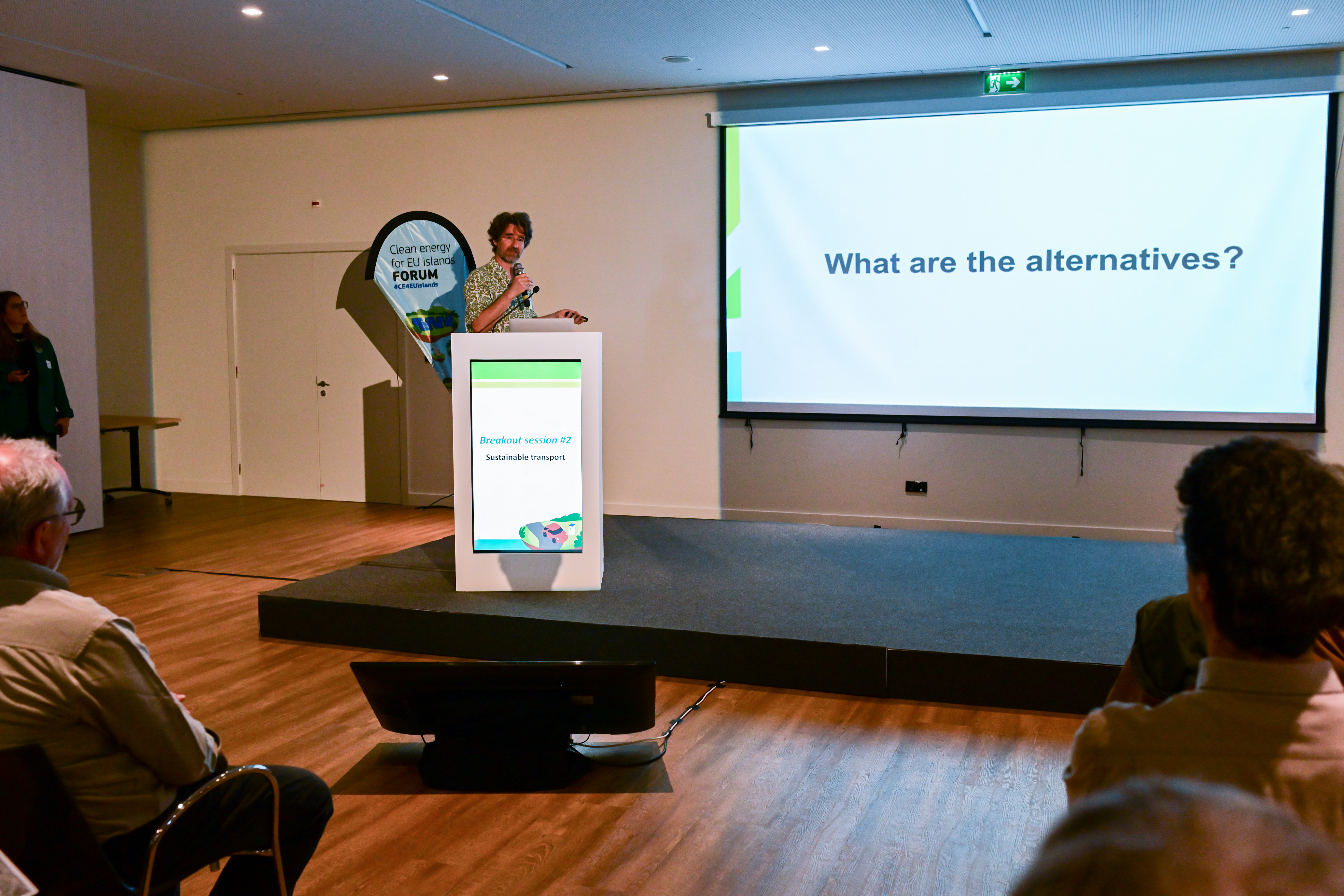
Session: Regulatory Inventory – Navigating the Legal Landscape
Motjaba Eliassi introduced the secretariat’s Regulatory Inventory, a comprehensive tool covering 15 EU Member States with inhabited islands. The inventory maps legislation, national targets, and energy support schemes, helping communities identify regulatory barriers and align their projects with national and EU frameworks.
This session provided a valuable resource for local authorities and project developers seeking to navigate complex legal environments and accelerate their energy transitions.
